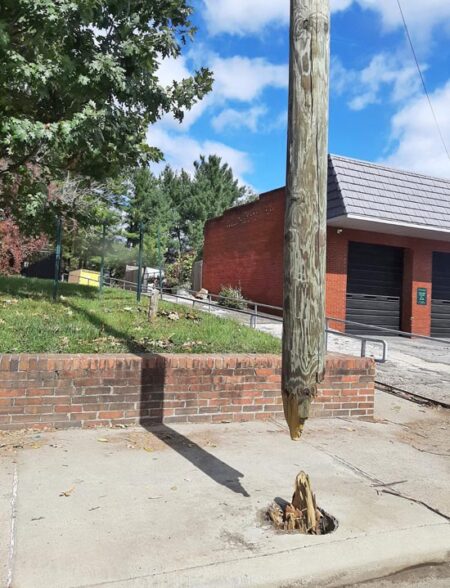Come Hell or High Water
Community memory project documents Asheville’s response to Helene.

In late September 2024, Tropical Storm Helene swept through Western North Carolina, surpassing the Great Flood of 1916 to become the region’s most significant natural disaster.
The impact of the storm extends beyond the damage to the land and infrastructure, leaving people across the region with immense losses that will shape our geography, communities, and collective memory for years to come.
Come Hell or High Water is a community memory project to collect, preserve, and present the stories of the western North Carolina communities impacted by Tropical Storm Helene.
The project, curated by Buncombe County Special Collections, creates a pathway for community reflection, healing, and long-term development of community memory not afforded to victims of past disasters (like the Great Flood of 1916).
Katherine Cutshall, Buncombe County Special Collections Manager, says, “Oral history gives its subjects a chance to think through their experiences and fully come to terms with their interpretation of events, something that other forms of story collection and fast-moving forms of media—such as news gathering—don’t always allow the time for.”
Submissions from the public range from first-hand video accounts to poetry and songs, like a rendition of Dolly Parton’s “Jolene,” recast as “Helene,” written and performed by Michael Hatch. The library also has photographs and documentation of Asheville’s 1916 flood, which set the records that Helene shattered.
Anyone interested in contributing videos, art, photos, or a story to the project should visit helenehistory.omeka.net/contribution. You can also share your experience in a 3-minute audio message at (828) 222-3609.
Volunteers are also needed for other archive-related events, including collection of oral histories. Volunteers can contact the project at helenehistory.omeka.net/contact.
View Come Hell or High Water at helenehistory.omeka.net.








